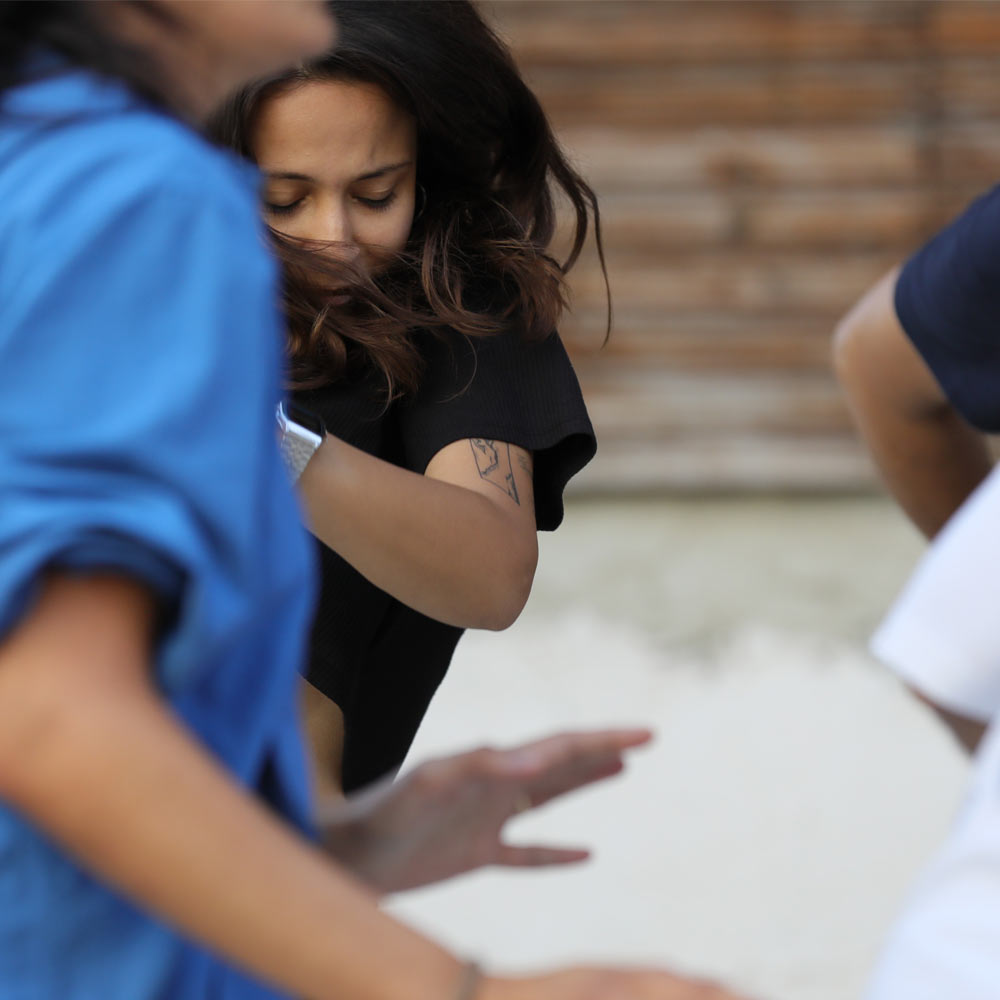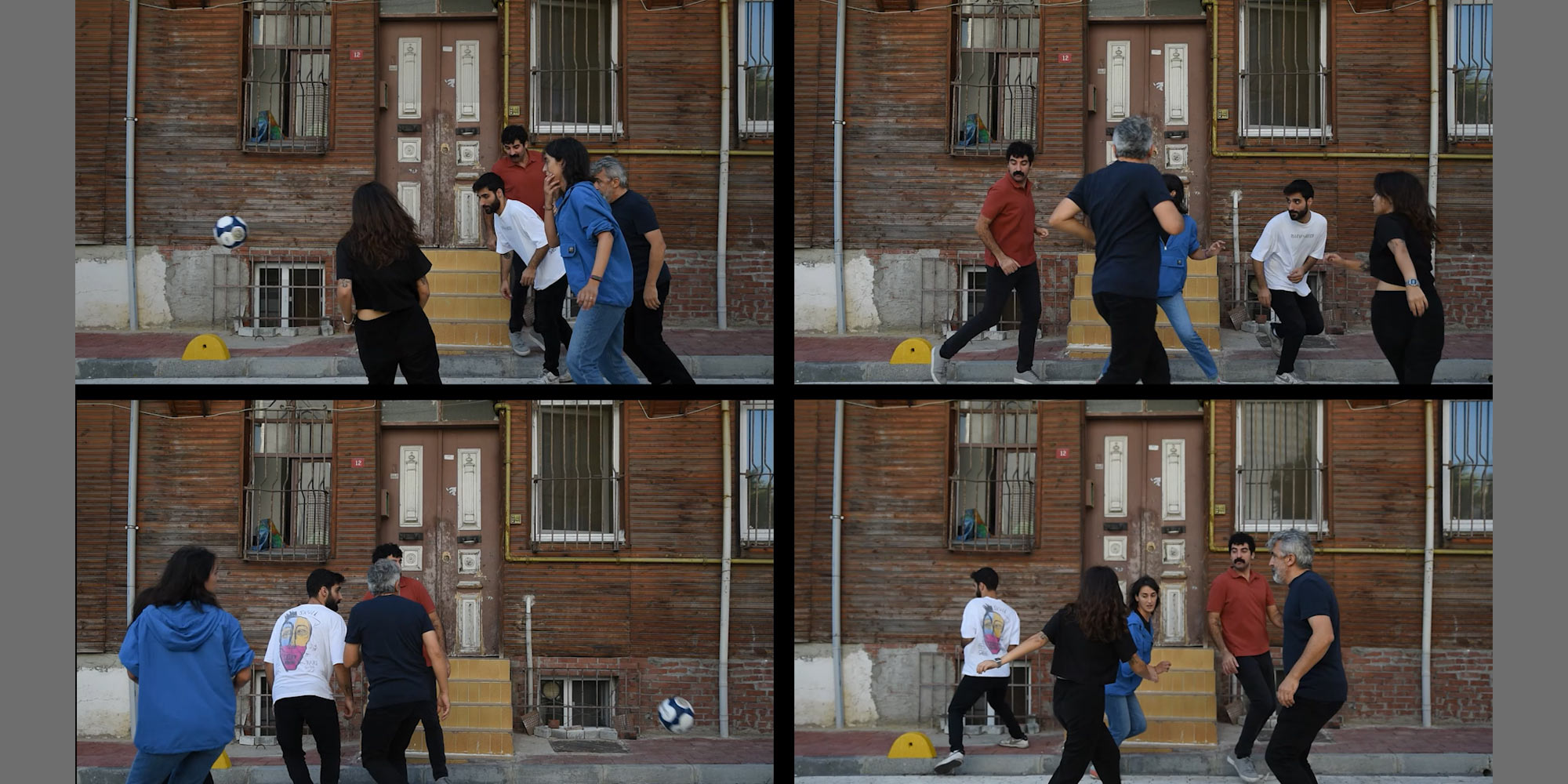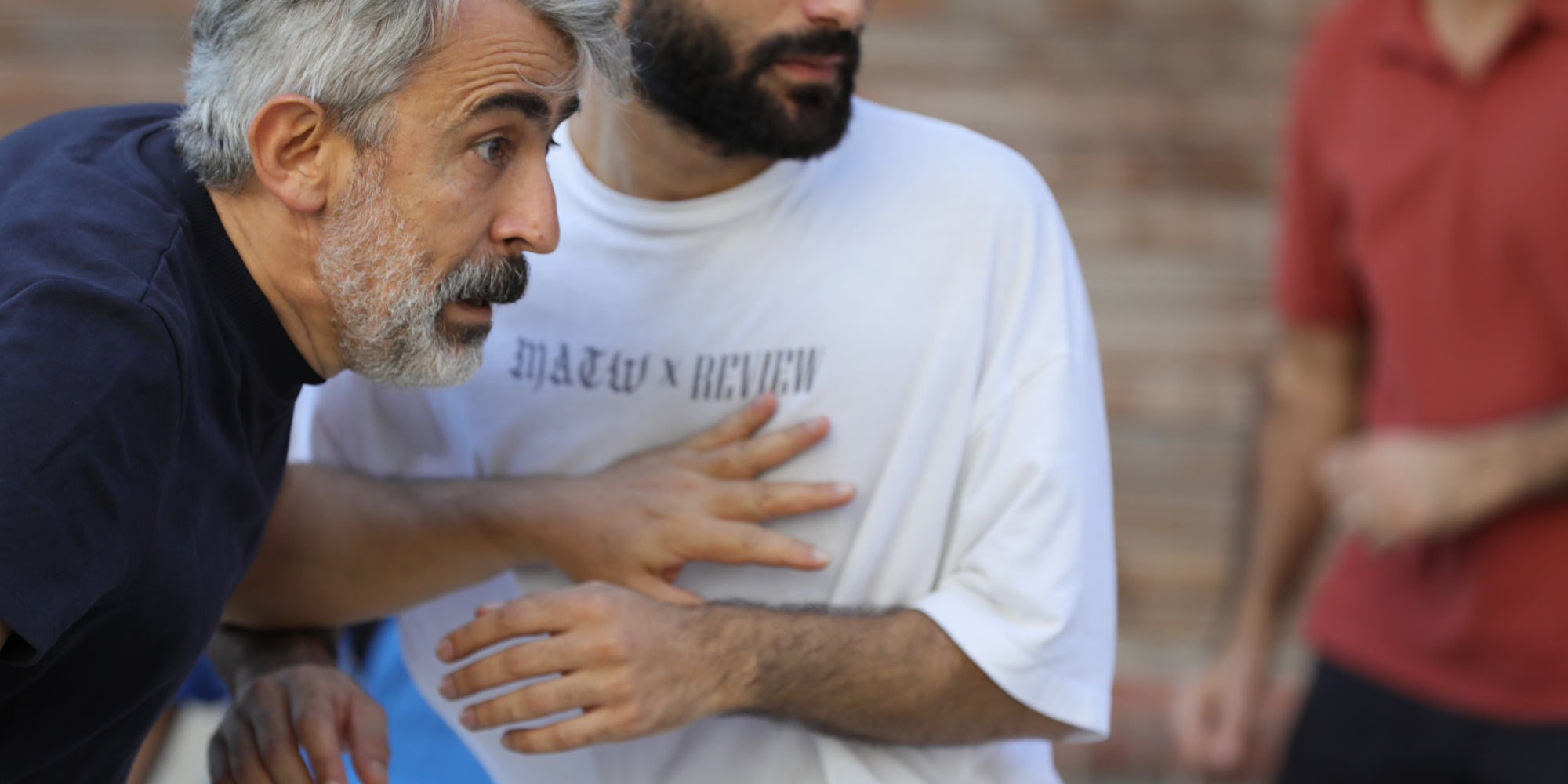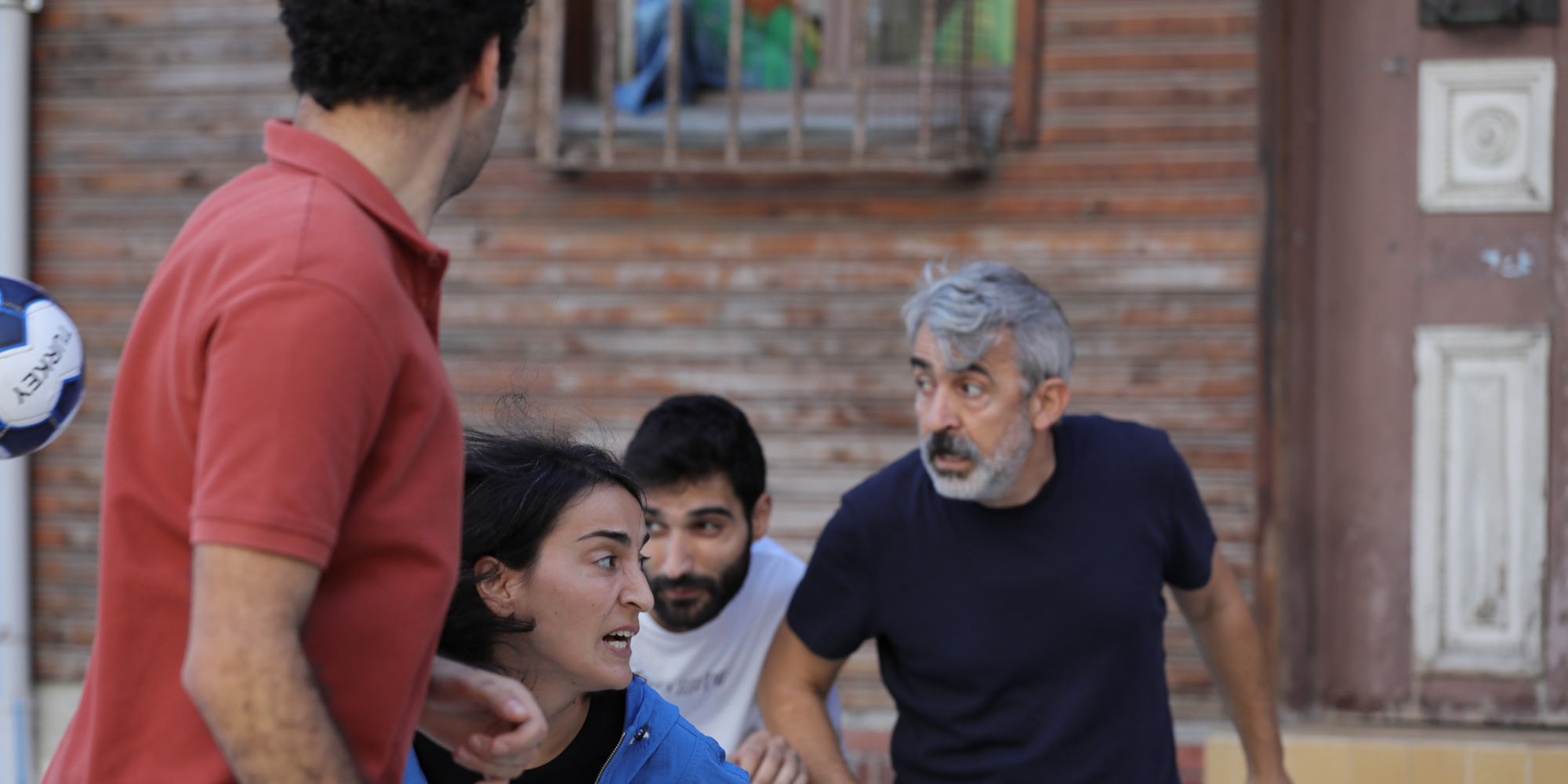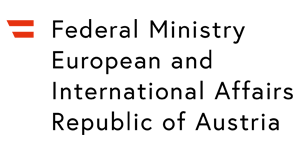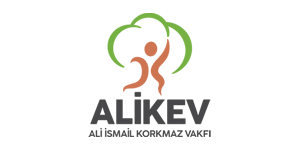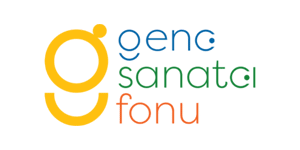The video installation Fugue centers on the performance of perpetration and the confrontation with collective traumas that have remained unaddressed to this day. It takes its name from “fugue”—a polyphonic form in classical music derived from Latin, meaning “escape,” and characterized by repetition. This structure becomes a fundamental compositional principle within the work, both visually and sonically.
In the installation, the performance of perpetration—marked by the evasion of responsibility and the continual reproduction of the self through denial—is conveyed through the players game of dodgeball. In this context, the ball becomes a metaphor for guilt, denial, and the transfer of responsibility. The figures appear locked in a persistent effort to reject accountability, repeating the same stance across different spatial and temporal possibilities.
Each video channel consists of visuals and sound that share a common point of departure, but unfold at different times. This editing strategy refers both to the layered nature of the fugue structure and the temporal continuity of collective traumas, ultimately generating a form of testimony that becomes increasingly difficult to endure.
